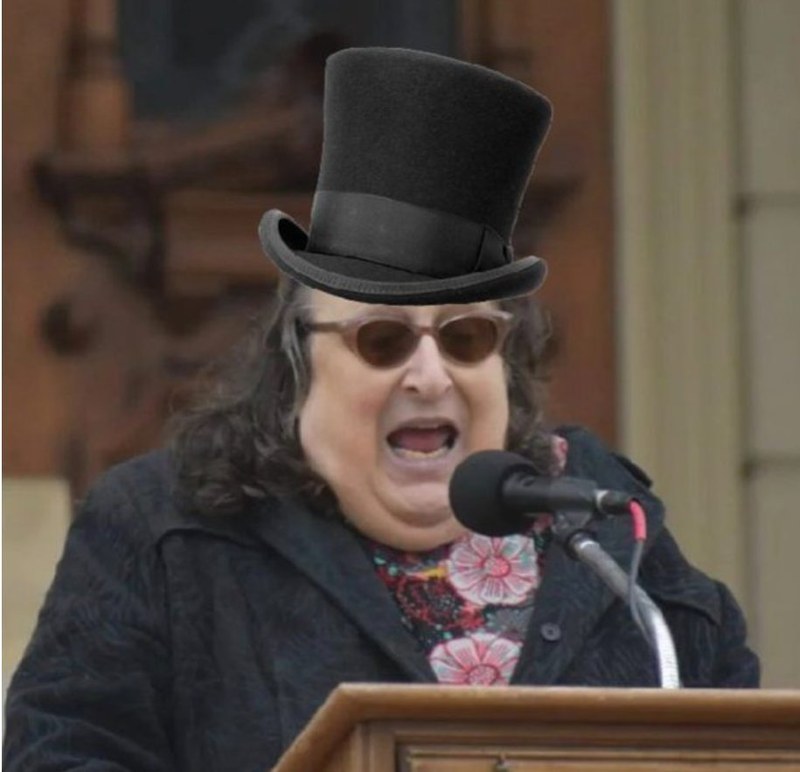How can we classify transgenderism and discrimination against it?
A short post by James Lindsay.

The whole argument about "discriminating" against someone because of "transgender status" makes absolutely no sense, no matter how you parse it.
Let's parse it to see.
Either transgender status is what's called an "accident of birth" or the direct result thereof, or it is a belief state. In other words, it is one of three things:
- an essential characteristic of the person,
- a religious belief in an established religion that is sincerely held, esp. if matching the parents' religion(s), or
- an adopted belief state about the self that is neither a religious conviction in an established religion.
It isn't possible to discriminate based on (3) in the sense relevant to civil rights law; (2) requires the religious belief be an established religion; and (1) would mean they are born that way. Of course, "transgender status" is (3). It's not (2) because, although I do believe it's the consequence of a (cult) religious conversion, the relevant ideology, which is a branch of Queer Theory, is not recognized as an established religion.
If "transgender status" is a matter of personally held beliefs about yourself (it is), whether based on intention or psychological delusion, what is being discriminated against is the person's behavior, not the person themselves. The person may be perfectly welcome to completely equal treatment absent the behavior, even if that behavior is the result of a mental illness or a coping mechanism for dealing with other mental illnesses.
Importantly, of course, it isn't possible to claim that discriminating based on sex, in particular, because persons of any sex can claim transgender status, and on the basis of finding out someone is of "transgender status," we have absolutely no way to know what sex the person is without further information. Arguments of this type (attn: Justice Gorsuch) are specious and confused.
That means we could only "discriminate" against "transgender status" if people are born that way, i.e., if it is an essential characteristic to the person that is an "accident of their birth." For that to be the case, it would be necessary that one's sex (a matter of their biology, an essential characteristic of their person) and "gender identity" (presumed for the sake of argument to exist in some "innate" way) to be incongruous.
The mere existence of "detransitioners" and other "desisters," however, refutes this view completely. To have detransitioned or desisted requires the person to have adopted "transgender status" previously, which would imply both (a) that their sex and "gender identity" are incongruous by virtue of the fact that they had "transgender status" and (b) that their sex and "gender identity" are congruous by virtue of the fact that they detransitioned or otherwise desisted. That's impossible, a direct contradiction.
The only remaining argument possible that preserves a claim of "discrimination" being possible against people with "transgender status" is that people who detransition or desist were either incorrect or faking it, and thus they were misdiagnosed (by self or others) when obtaining "transgender status." This is actually possible. If that is the case, however, it proves that accurate diagnosis of "transgender status" is impossible in practice and perhaps in principle because the sole criteria for establishing such a diagnosis are related to subjective statements about the self made by people claiming "transgender status" in the first place. In other words, "gender-affirming care" could never be indicated because an accurate diagnosis would be virtually, if not practically, if not in-principle, impossible to make.
The simplest resolution to this problem is to simply admit that "transgender status" is what it is in actual reality: a set of beliefs about the self caused either by intention, delusion, or as a coping mechanism for other underlying conditions that are likely not being adequately treated once "transgender status" is conferred upon the relevant person.
Again, I insist that it is in fact a religious practice based in religious beliefs, but the religion is not established or recognized as such, and even if it were it should be limited in the protections it is extended in terms of its practice because it is, in fact, identifiably a cult religion based on the denial and attempted transformation of reality itself, not merely self or society, through psychosocial magical processes.

